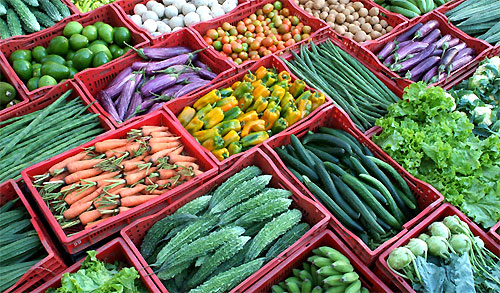|
At what cost the 'greater good of the people?'
Daily Mirror Editorial Dec 16, 2011 | |
 The Presidential intervention into the resolution of an issue directly affecting an already heavily burdened consumer is commendable. The entire episode of the intimidation of vegetable traders reeked corruption. The crux of the governments’ argument stands to little reason in a global scenario where any measure affecting the environment is shunned. To bring in laws actually promoting the wide and compulsory use of plastics in the manner envisaged are both untimely and dangerous. What measures will the government bring in, to dispose of the plastics, already piled high in a country fast becoming the dumping ground for cheap plastics? The Minister of Internal Trade and Consumer Affairs claims it is in the greater good of the consumer that the directive was imposed. It is unclear what greater good will be served aside of clearly commercial reasons, serving a corrupt few. It is important that the government takes some serious steps albeit politically unpopular decision as on the issue of a garbage. This invariably includes the adoption of mature policy on the usage of environmentally unfriendly material such as plastics. The country is already lagging far behind other Asian countries in its recycling policies, at heavy cost to the health and environment of tax payers. The Minister’s insistence in using plastic crates begs common sense, in a market still largely driven by price over quality. The fact also remains that while the high end consumer who would appreciate the quality of the goods proposed by the Minister, (and more importantly be able to afford the added cost) the majority consumer is one who sadly would still be forced to purchase the substandard goods. It is more important that the government allow the consumer a greater purchasing power with a lower cost of living. It is only then that the lower end consumer will have a choice over quality of the goods. It is therefore imperative that government policy is not dictated by measures to make a few rich over the greater good of the people. Certainly the Minister raises a very pertinent point on the clout enjoyed by the middle trader; who has continued to be the bane of a majority of sectors directly affecting the consumer. The manner in which the paddy farmer is harassed by them is a point in case. Needless to say these are areas that demand change if the farmer is to receive his due. But, such change can not come by way of intimidation and pressure the country witnessed the past week. The much needed compromise is one that need necessarily come by way of strategically removing the middle trader after better empowering the farmer. As long as state policy leaves the farmer vulnerable before the trader, little can come from changes, however positive they may be. Source: Daily Mirror - Sri Lanka
|
|